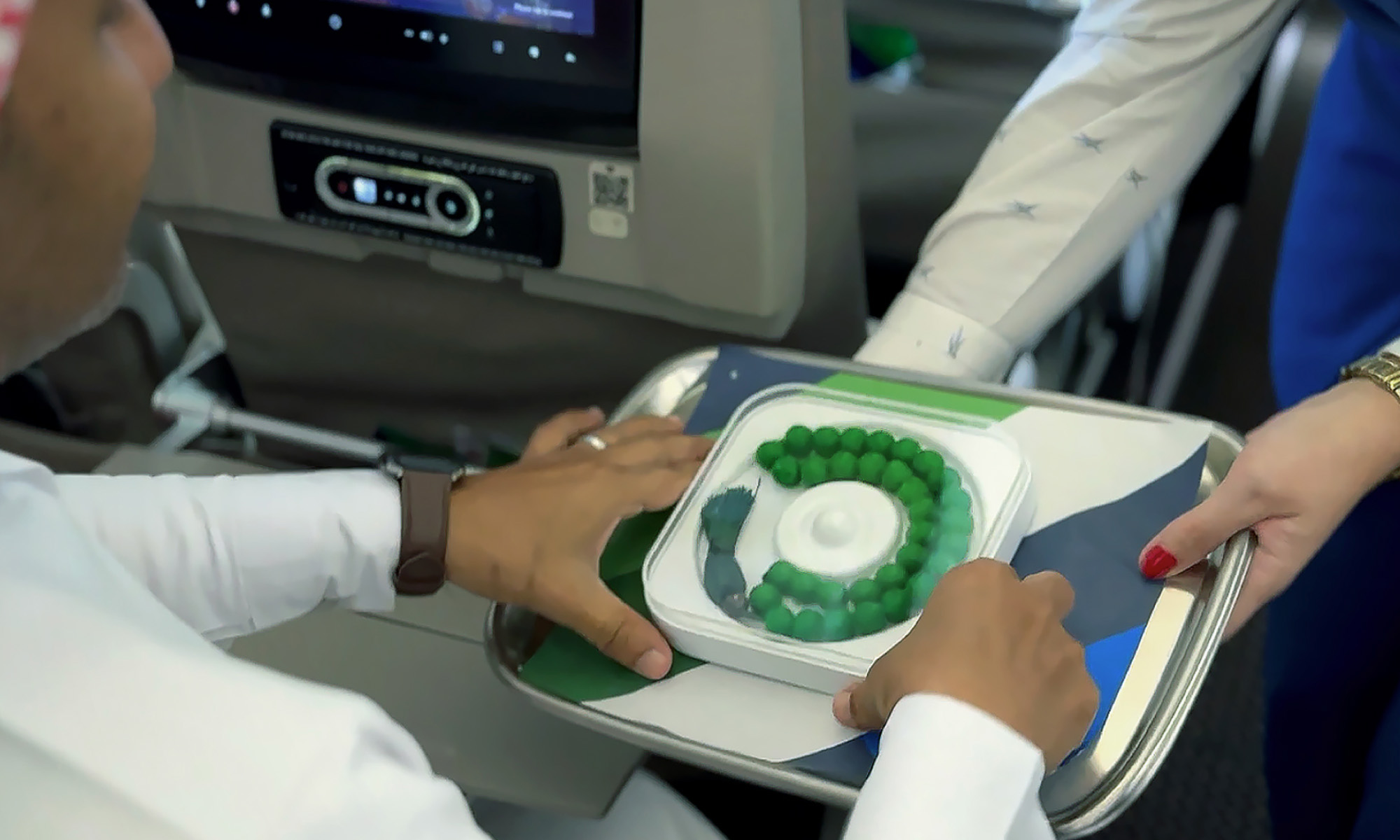News
Saudia Introduces Sanitizing Prayer Beads For Religious Pilgrimages
The national airline has developed ProtecTasbih, a groundbreaking solution marrying hygiene with tradition for traveling pilgrims.

Saudia, the national airline of Saudi Arabia, has introduced ProtecTasbih, prayer beads infused with self-cleansing properties, helping to create a safer pilgrimage experience for the millions who travel to Makkah for Hajj and Umrah.
ProtecTasbih is a result of a collaboration between Saudia and its creative partners, including Leo Burnett Saudi Arabia and Saatchi & Saatchi Dubai. Confronted with the challenge of incorporating antibacterial elements into prayer beads without adding alcohol, the team opted for tea tree oil due to its natural ability to disrupt the cell membranes of bacteria.
The beads are engineered to endure various environments and temperature fluctuations, from the controlled atmosphere of aircraft cabins to outdoor pilgrimage trails. Beyond their cleansing function, the beads are also sustainable, as once the antibacterial outer shell is worn away, a core shell underneath allows them to continue to be used, reducing waste.
Also Read: Joby To Launch High-Speed Air Taxi Service In Dubai
As pilgrims embark on their spiritual journeys, ProtecTasbih will enhance hygiene standards without interrupting age-old customs.
News
Rabbit Expands Hyperlocal Delivery Service In Saudi Arabia
The e-commerce startup is aiming to tap into the Kingdom’s underdeveloped e-grocery sector with a tech-first, locally rooted strategy.

Rabbit, an Egyptian-born hyperlocal e-commerce startup, is expanding into the Saudi Arabian market, setting its sights on delivering 20 million items across major cities by 2026.
The company, founded in 2021, is already operational in the Kingdom, with its regional headquarters now open in Riyadh and an established network of strategically located fulfillment centers — commonly known as “dark stores” — across the capital.
The timing is strategic: Saudi Arabia’s online grocery transactions currently sit at 1.3%, notably behind the UAE (5.3%) and the United States (4.8%). With the Kingdom’s food and grocery market estimated at $60 billion, even a modest increase in online adoption could create a multi-billion-dollar opportunity.
Rabbit also sees a clear alignment between its business goals and Saudi Arabia’s Vision 2030, which aims to boost retail sector innovation, support small and medium-sized enterprises, attract foreign investment, and develop a robust digital economy.
The company’s e-commerce model is based on speed and efficiency. Delivery of anything from groceries and snacks to cosmetics and household staples is promised in 20 minutes or less, facilitated by a tightly optimized logistics system — a crucial component in a sector where profit margins and delivery expectations are razor-thin.
Despite the challenges, Rabbit has already found its stride in Egypt. In just over three years, the app has been used by 1.4 million customers to deliver more than 40 million items. Revenue has surged, growing more than eightfold in the past two years alone.
Also Read: Top E-Commerce Websites In The Middle East In 2025
CEO and Co-Founder Ahmad Yousry commented: “We are delighted to announce Rabbit’s expansion into the Kingdom. We pride ourselves on being a hyperlocal company, bringing our bleeding-edge tech and experience to transform the grocery shopping experience for Saudi households, and delivering the best products – especially local favorites, in just 20 minutes”.
The company’s growth strategy avoids the pitfalls of over-reliance on aggressive discounting. Instead, Rabbit leans on operational efficiency, customer retention, and smart scaling. The approach is paying off, having already attracted major investment from the likes of Lorax Capital Partners, Global Ventures, Raed Ventures, and Beltone Venture Capital, alongside earlier investors such as Global Founders Capital, Goodwater Capital, and Hub71.





















